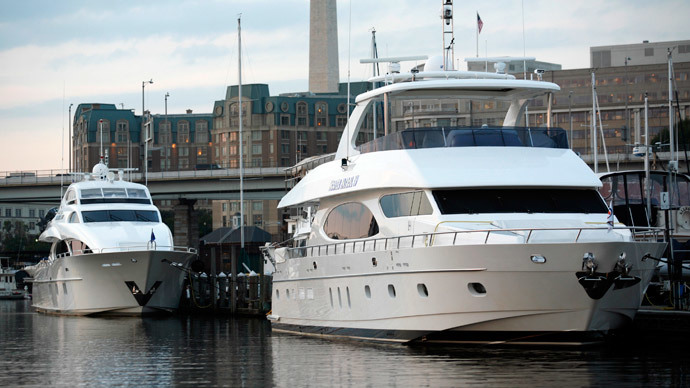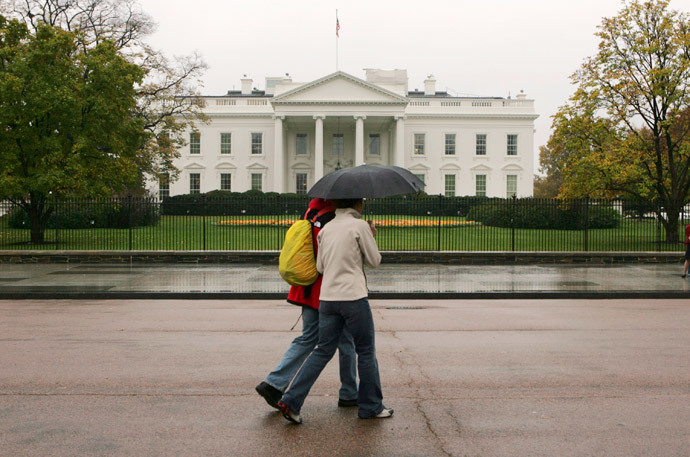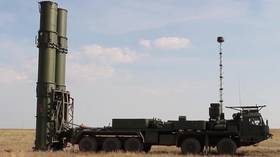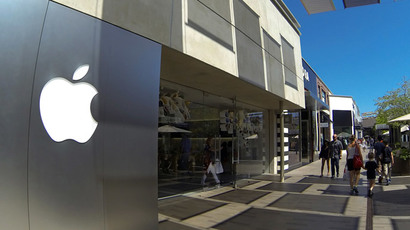'Another planet': Washingtonians & average Americans 'couldn’t be more different', study finds

With Americans expressing some of the lowest opinions of the three branches of government ever recorded, it turns out that Washington at the same time does not hold the American electorate in high esteem, two academics discovered.
In an effort to gauge the similarities and differences between Washington bureaucrats and the American public at large, Jennifer Bachner and Benjamin Ginsberg, professors at Johns Hopkins University, conducted an exhaustive survey of 850 Federal employees, Hill staffers, contractors, consultants, lobbyists and think tankers, the Washington Post reported.
READ MORE: Congress won’t touch NSA reform until after midterms, may wait until 2015 – report
The results varied enough to suggest that Americans are from Venus and Washington bureaucrats are from Mars.
“The elements of difference we have identified between the rulers and the ruled — demographic, experiential, partisan and ideological — give us some reason to suspect that the two groups may not perceive the political world in the same way,” the authors write. “Taken together, these elements could well create a substantial cognitive and perceptual gulf between official and quasi-official Washington on the one hand and the American public on the other.”
More specifically, the researchers found that 91 percent of federal employees are white, and earn on average $81,704 dollars annually or 48 percent more than the private sector mean of $54,995. That places federal workers in the top 10 percent of American income earners.
Sixty percent of those who work in Washington, DC are Democrats
versus 35 percent of Americans at large.
In the 2012 presidential election, 97 percent of Congressional
and White House staffers voted versus 80 percent of other
Americans. Sixty-two percent of those Hill staffers believe
election votes are counted fairly “very often” compared with 33
percent of other Americans.

Beltway residents are more regular followers of current events, reading the news at least five days a week compared with about three days a week for the rest of the nation.
The data on “average Americans” is largely drawn from the 2012 American National Election Study.
The real breakdown between Washingtonians and average Americans begins to show with regards to their grasp of political issues. A full 100 percent of Congressional and White House staffers believe government and politics can be understood “by people like them,” only 30 percent of Americans reported the same.
At the same time, the cost of goods and services is higher in Washington, DC than anywhere else in the country.
“Official Washington views the public through jaundiced eyes, believing that ordinary Americans are uninformed and misguided and that policy makers should ignore them,” Ginsberg says.
Such a view may cause Washington power brokers to ignore the opinion of the “average American” in the belief that he or she does not understand the issues.
“The government’s lack of trust in the people reflects the civic distance between the American people and their government as much as any political reality,” Ginsburg continued. “Nevertheless, what the government thinks of the people affects how it governs, especially the chance that policy will be influenced by citizen preferences.”
In conclusion, Bachner and Ginsberg said if an average American were dropped into “a lunch at Washington’s power-broking Palm Restaurant,” they would be certain that they had just landed on another planet. Such a sharp difference of perceptions among two “classes” of Americans, they say, leads to “divergent philosophies on policies, priorities and government’s ultimate purpose.”
In an effort to prescribe a cure for the breakdown in the relationship, the researchers turn the old coin on its head, arguing that it is in fact Washington officials who require the education necessary to lead the people.
“Some say American democracy would be strengthened if the people received better civic education,” he added. “We argue that it is America’s governing elite that needs civic education, focusing on the responsibilities of officials in a democracy.”
Meanwhile, with less than two months to go before the midterm congressional elections, 14 percent of Americans approve of how Congress is handling its job, according to a Gallup poll. This rating is one of the lowest Gallup has measured in the fall before a midterm election since 1974.
One does not have to go back too far to locate the worst-ever reading on Congress: The all-time low congressional approval rating is 9 percent, measured in November 2013.
At the same time, Americans' trust in the legislative branch dropped six percentage points in 2014 to a new low of 28 percent. Trust in the executive branch fell eight points, to 43 percent, and trust in the judicial branch, at 61 percent, is also the lowest reading to date.














